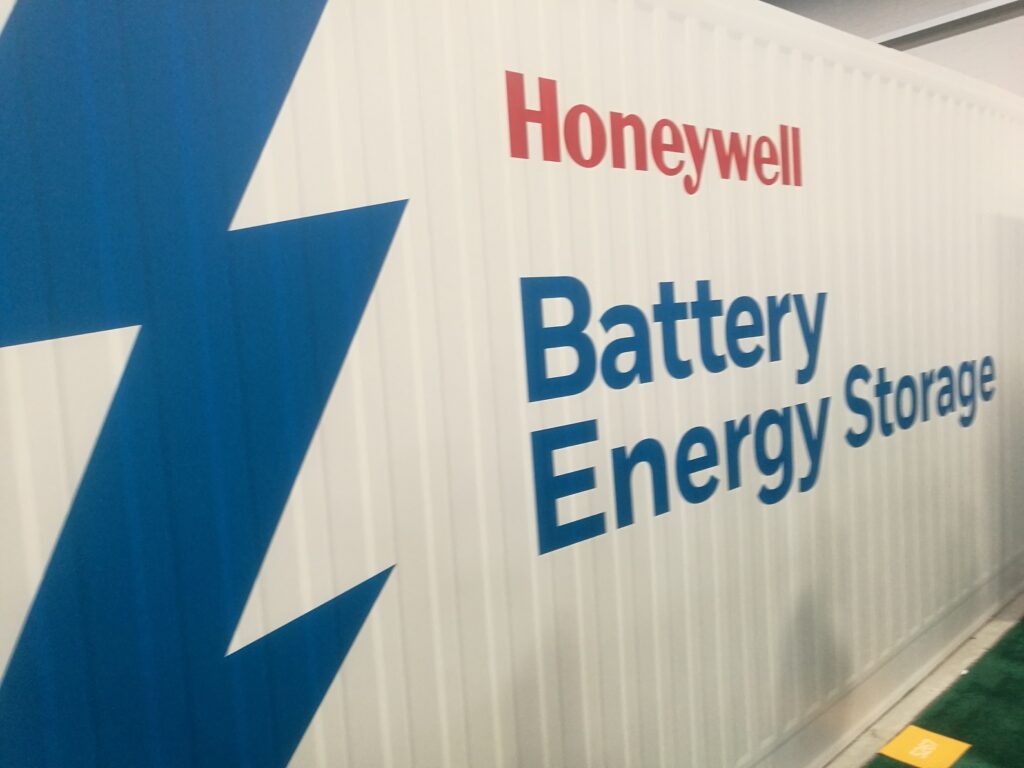
Honeywell has made the first announcements around a long-duration battery storage technology it has developed for pilot deployments to begin next year.
The US-headquartered multinational conglomerate has developed a new flow battery, which it claimed is capable of storing and discharging electricity for durations up to 12 hours. It said this morning that the technology will be tested by major utility company Duke Energy in a 400kWh system configuration in 2022.
Enjoy 12 months of exclusive analysis
- Regular insight and analysis of the industry’s biggest developments
- In-depth interviews with the industry’s leading figures
- Annual digital subscription to the PV Tech Power journal
- Discounts on Solar Media’s portfolio of events, in-person and virtual
After that, Honeywell wants to scale up to a 60MWh pilot project the following year.
Like other flow batteries, the technology offers the chance to store more energy simply by making the tanks that store liquid electrolyte larger. The battery does not degrade even with heavy use over time and is designed for a 20-year expected lifetime.
Energy-Storage.news spoke with Honeywell Sustainable Technology Solutions (Honeywell STS) vice president and general manager Ben Owens about the product and its development, as well as the market applications and opportunities it could be used to pursue.
Owens said that Honeywell “saw a core need for a battery that’s longer duration [than lithium-ion]; a utility-scale solution that uses non-rare earth element”.
While the company is not willing at this stage to reveal publicly details of the exact battery chemistry, Owens confirmed that the electrolyte will be a “non-rare earth element,” and the product is designed to be recyclable, made using easy to source, non-toxic materials.
Crucially he said, “we really like its ability to scale up and down. The characteristics of a flow battery, I think really lends itself well to the utility industry”.
Cost is a bigger driver for utility investment decisions than energy density, for example, and Honeywell has claimed that its flow battery coupled with renewable energy can be a cost-effective alternative to coal-fired plants.
Indeed, Duke Energy’s Emerging Technology and Innovation Center in Mount Holly, North Carolina, has been used to test numerous different battery storage technologies for different applications already for a decade.
Duke and other utilities could enable greater and greater shares of solar and wind in their service areas with long-duration energy storage and reduce their reliance on fossil fuels. Duke Energy itself is targeting a 50% reduction in emissions versus 2005 levels by 2030 and net zero emissions by 2050.
“Our Emerging Technology and Innovation Center is an ideal proving ground to study this technology. Over the next five years, Duke Energy plans to install almost 400MW of battery storage capacity in our service territory. We have a keen interest in breakthrough technologies,” Duke Energy’s Smart Grid Emerging Technology and Operations director Tom Fenimore said.
Honeywell’s Ben Owens said there’ll continue to be a need for lithium-ion in the power sector — Honeywell of course does already work with lithium-ion too — for applications up to and including four-hour duration requirements.
“You also need some seasonal storage. That’s most likely going to be accomplished by hydrogen,” he said.
“But in our modelling we can see that you can get to more than 50% wind and solar on the grid with a battery that runs 12 hours. So we think this is the spot to develop in.”
Read the full in-depth interview with Honeywell’s Ben Owens: ‘We like its ability to scale’: Honeywell targets gigawatt-scale storage opportunity with flow battery, here.






